She lost both parents to glioblastoma. Now she's helping other stricken families 'slay their dragons'
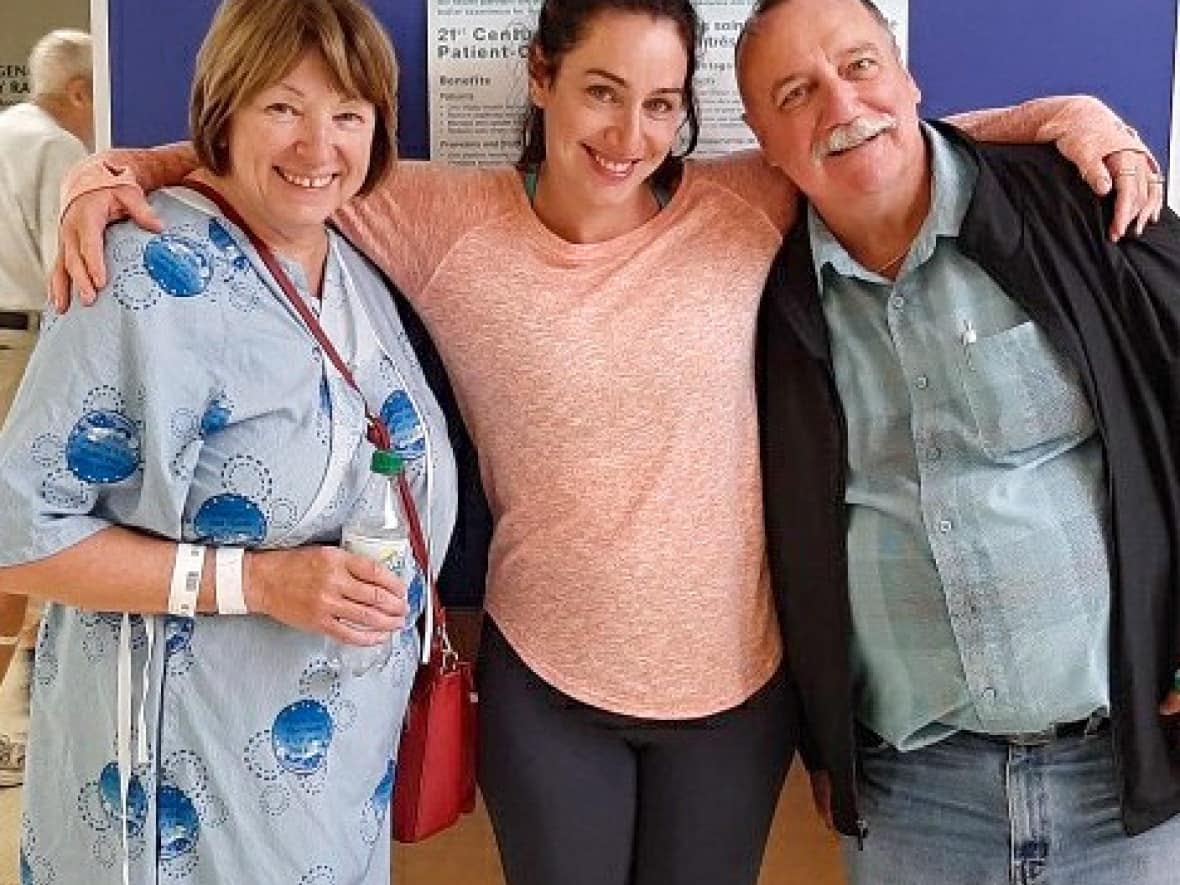
When Laura Dill learned in August 2019 that her father had been diagnosed with glioblastoma, an aggressive and deadly form of brain cancer, she resolved to spend as much time with him as possible.
Dill, a busy wife and mother of three who also ran three businesses from her home in Orléans, knew they wouldn't have long — 12 to 18 months for most glioblastoma patients — and wanted to make the most of every remaining minute together.
I can't control the outcome of the disease, I can't control the prognosis, but I can control them having some bright moment in their day. - Laura Dill
Then, 14 days after her father's diagnosis, on Dill's 37th birthday, her mother suffered a seizure and collapsed in her kitchen.
Incredibly, she was diagnosed with the same disease — her tumour the same size, in the same part of the brain — and given the same grim prognosis.
"You go from two healthy parents to 14 days later you have two parents who have a year to live, and within the year you have two parents who are dead," Dill told CBC. "It's a huge mountain to climb alone."
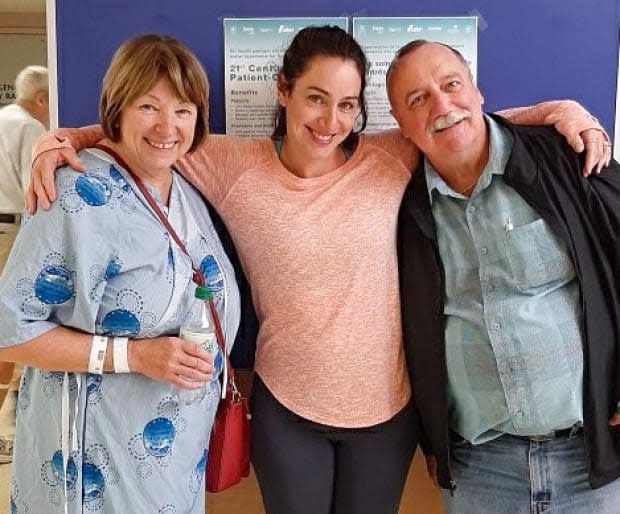
Small acts of kindness
Thankfully, Dill didn't have to climb the mountain alone.
Her own inner circle of family and friends, including her close-knit hockey team, made sure Dill was keeping her head above water.
"[They'd] pick my kids up from school when I'd forget them, quite honestly — forget to be a parent, forget to be a wife, forget to be a friend. All I could do in that time, and all I could think to do — and quite honestly all I wanted to do — was be a daughter."
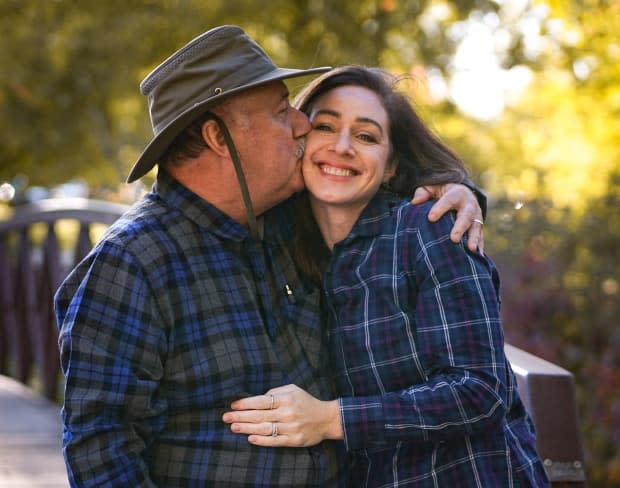
As word of Dill's family tragedy spread, neighbours and others began dropping off meals, gift cards and books for her to read during visiting hours. (Dill's parents, who were divorced, ended up at different hospitals.)
"Strangers were leaving gift bags at my front door with gift cards in them, anonymously — people I'd never met," she said.
Even on days when all she wanted to do was flop on the floor and cry, Dill said, those small acts of kindness kept her going.
"There's no way in heck that I could have gone through this without the support of the community around us."
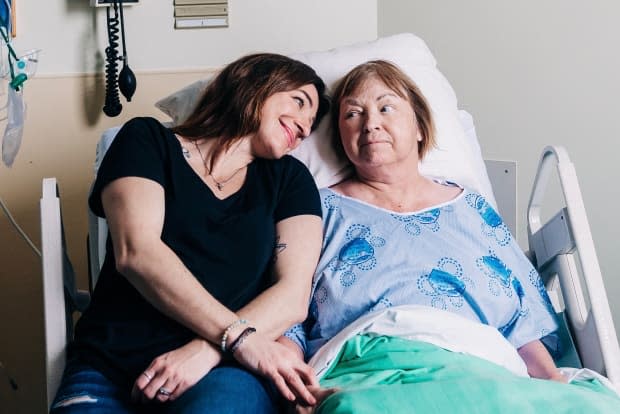
Slaying dragons
When he received his diagnosis, Dill's dad Gerry Matthews told his family that together, they would have to "slay one dragon at a time."
That image stayed with Dill as she watched her parents undergo numerous surgeries and rounds of cancer treatment, even as the COVID-19 pandemic threatened to keep her from being by their side when they needed her most.
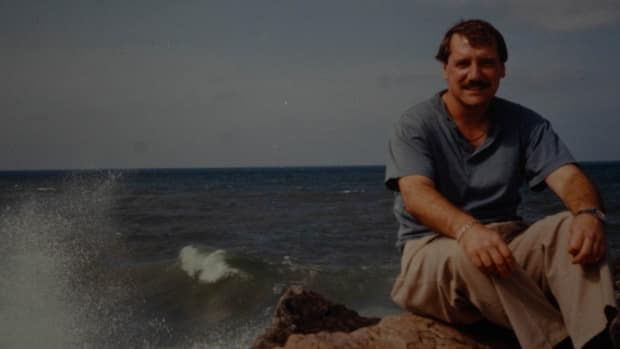
In February 2020, inspired by all the help and support she'd received, Dill launched the Slay Society with the aim of helping other families grappling with the sudden calamity of a glioblastoma diagnosis.
By paying the kindness she'd received forward, Dill hoped to buy them a little more time with their loved ones.
"I felt like the amount of regret that they would have at the end of the day when their loved one passes — you can't fix that. But maybe I could give them a little bit of time back by putting money in their pocket," she said.
It started with a few batches of Valentine's Day cookies. Dill figured she could sell them and raise $50, enough for a gas card to help a family fill their tank without worrying about the cost of all that driving back and forth to the hospital.
It wasn't a big thing, but it would show them someone cared.
"One tiny joy. I can't control the outcome of the disease, I can't control the prognosis, but I can control them having some bright moment in their day," Dill reasoned.

'People need hope'
The cookies were a hit and the Slay Society raised $400, enough to fill several gas tanks. Next, an online auction with donated prizes raked in more than $4,000.
Through her growing network, Dill began identifying families who were stretched thin financially or otherwise struggling to cope, and began offering assistance.
She raised about $9,000 for a single father of four who'd recently been diagnosed, "just to pay the bills."
One woman was given enough to cover several airfares from Calgary to Ottawa where her father was in hospital.
"When I think about that I just could cry at how I gave this daughter time with her dad that she otherwise wouldn't have had," Dill said. "She was blown away by that."

A horticulturist by trade, Dill also organized a plant auction at a local brewery that raised $12,000 within a few hours.
Through her regular fundraisers and the ongoing sale of Slay Society merchandise, Dill estimates the charity, which became registered last year, has helped 20 families financially and "hundreds, if not thousands emotionally" through her online support groups, one for caregivers and another to help those who have lost a loved one to the disease deal with their grief.
Due to the nature of the glioblastoma, Dill said, there's a constant flow of members from the first group to the second.
"I was really scared to start that. I'm not a medical professional, but I am a human being and I have experienced all of this firsthand — twice, during a pandemic — and I know how lonely it is, I know how isolating it is," Dill said.
"I can raise money all day and put $2,500 in a caregiver's pocket and buy them gas cards, but they [also] need a human connection. People need hope."
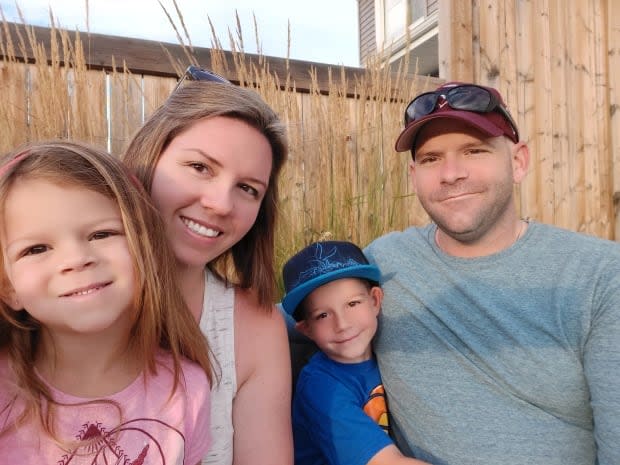
'She gave us Christmas'
Hope was in short supply when Victoria Trowbridge and her family first encountered Slay Society. Trowbridge's husband John McAuley was diagnosed with glioblastoma in late October 2021, four days before the couple and their two young children were due to move to Alberta where they were planning to make a fresh start.
"We had sold pretty well everything we owned except for clothing, and so at that point we were left without a home. That's when I knew I needed help," Trowbridge recalled.
The Slay Society helped cover the cost of their accommodation in a series of hotels and Airbnbs while McAuley began treatment in Ottawa. One day before Christmas, Dill dropped by with a tree, decorations, gifts and crafts for the children.
"Laura was there," Trowbridge said. "She gave us Christmas. We had nothing."
Trowbridge said she has also taken full advantage of the Slay Society's support group for caregivers.
"Everyone understood what I was going through, and I didn't have to feel ashamed," she said. "It's just a safe place where I was able to be myself again."
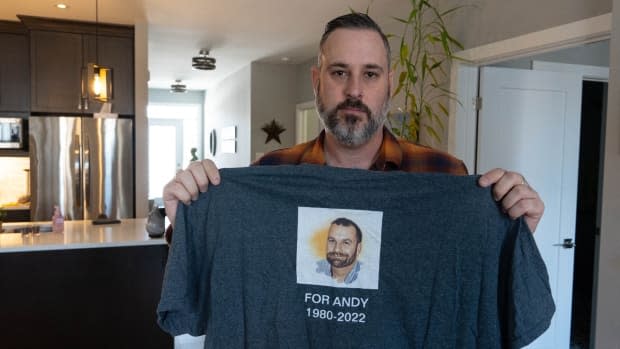
A lifelong connection
Shawn Payer lost his husband of 20 years Andy Gauthier to glioblastoma last April, 10 months after Gauthier's first seizure and subsequent diagnosis.
"We agreed that when the time came that he would be admitted, but we did everything we could to keep him home as long as we could," Payer said.
Making good on that promise strained the couple's finances, however, so $1,500 worth of gift cards for groceries and other essentials from the Slay Society went a long way.
"When this happens you're pretty much going from two incomes to one income, so just having that financial relief was huge for us," Payer said.
After Gauthier's death, Payer joined the Slay Society's grief group, where he's found solace and understanding.
"A lot of us have lost our loved ones, and now we're on the other side of that so we're supporting each other, we're talking about our feelings," Payer said. "I think it's a lifelong connection — for the wrong reasons — but it's very important."
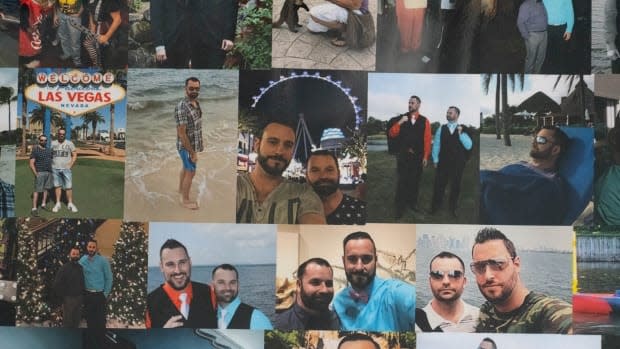
Few resources for families
Payer, whose Carleton Place home is full of mementos of the life he and Gauthier shared, has himself become a staunch advocate for brain cancer awareness.
Last June, he walked to raise $6,000 for the Brain Tumour Foundation of Canada, and next month he'll take part in a darts tournament to raise money for the Slay Society.
"There is little to no resources, sadly, about glioblastoma. It's the least-funded cancer and it's the most deadly, so there's not a lot of education about it," said Payer, who believes meeting Dill changed his own life for the better.
"She's really helped me keep focus, she always checks on me. I admire what she's doing, and that she can lose both her parents and still keep fighting and advocating for [victims of] this deadly disease."

Dill, who's busy gearing up for the Slay Society's next big fundraiser — an online auction at the end of March — has now assembled a small board of directors to help, though she continues to steer most of the planning and outreach.
She's also working with an online company that harnesses real-world brain data to help improve our understanding of neurodegenerative diseases, and continues to run the Slay Society's well-attended support groups.
"I feel like I'm helping other people slay their dragons," Dill said.


